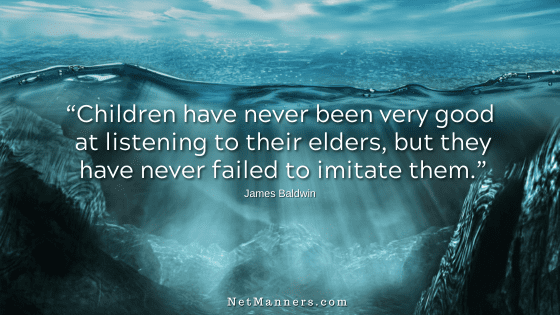Forwarding Other’s Emails: Legality and Ethics

Site visitors regularly ask for guidance about forwarding emails, particularly when forwarding emails written by others.
Yes, yes and yes!
Do Not Forward Emails Without Permission
From a courtesy point of view, you should not forward any email communication without the original sender’s knowledge. After all, it was sent to you alone. Unfortunately, many incorrectly think of email as something they “own” once it lands in their inbox.
Your friend may not appreciate the email they wrote to you being sent and shared with others. Reverse the roles, and how would you feel?
I’ve had folks then state, “But they know those I forward to.” It doesn’t matter. You need to ask whether they know who you are forwarding to first.
This is a Legal and Ethical Issue
Legally, forwarding emails to third parties without consent can potentially violate privacy laws, such as the General Data Protection Regulation (GDPR) in the European Union or the Health Insurance Portability and Accountability Act (HIPAA) in the United States, depending on the content of the emails and the jurisdiction. These laws typically require consent from the individuals whose personal information is being shared, and they impose strict guidelines on the handling and sharing sensitive data.
Ethically, forwarding emails without permission can breach trust and confidentiality. When someone sends you an email, they typically expect that communication to remain private between the sender and recipient unless explicitly stated otherwise. Sharing their email with third parties without consent can undermine this expectation and lead to a breakdown in trust.
Check out my article about Email Forwarding best practices,
which covers the 5 Rules for Forwarding.
Furthermore, forwarding emails without permission may also violate professional codes of conduct or organizational policies. Many workplaces have policies regarding handling confidential information and email communications, and violations may result in disciplinary action or legal consequences.
Technically, all emails are copyright-protected by the author upon creation. “Copyright exists from the moment the work is created.” Depending on what you are forwarding, who, where, and how often could cause legal issues to become exasperated.
When is my work protected?
https://www.copyright.gov/help/faq/faq-general.html
Your work is under copyright protection the moment it is created and fixed in a tangible form that it is perceptible either directly or with the aid of a machine or device.
Yeah, I hear you — copyright infringement is not a concern for communications between family and friends. But it most certainly can be, depending on the content of the email. So, I’m just letting you know all the potential implications.
It’s About Building Trust
For several reasons, forwarding a private email or posting it online without asking first is a bad idea, not just because of potential legal ramifications but because doing so will not contribute to building trust in your relationships.
Does using Cc: (courtesy copy) negate the need to request permission? After all, you notify the sender that you are forwarding their communication — after the fact — the email is sent. Furthermore, you have forwarded their private email apparently without courtesy or concern for their feelings.
So, cc’ing does not replace your responsibility to ask permission before emailing. Emails are written specifically for the recipient’s eyes. Therefore, unless stated clearly, there is no implicit permission to forward them to others without the sender’s knowledge or consent.
The bottom line is that forwarding emails without permission can have legal consequences due to privacy laws and ethical implications due to breaches of trust and confidentiality. It’s essential to obtain consent before sharing sensitive information (and that may be subjective) in emails with third parties.







